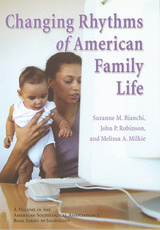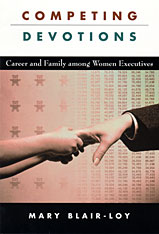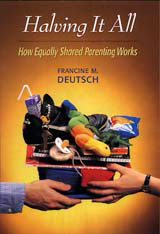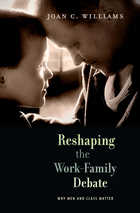

The wrenching decision facing successful women choosing between demanding careers and intensive family lives has been the subject of many articles and books, most of which propose strategies for resolving the dilemma. Competing Devotions focuses on broader social and cultural forces that create women's identities and shape their understanding of what makes life worth living.
Mary Blair-Loy examines the career paths of women financial executives who have tried various approaches to balancing career and family. The professional level these women have attained requires a huge commitment of time, energy, and emotion that seems natural to employers and clients, who assume that a career deserves single-minded allegiance. Meanwhile, these women must confront the cultural model of family that defines marriage and motherhood as a woman's primary vocation. This ideal promises women creativity, intimacy, and financial stability in caring for a family. It defines children as fragile and assumes that men lack the selflessness and patience that children's primary caregivers need. This ideal is taken for granted in much of contemporary society.
The power of these assumptions is enormous but not absolute. Competing Devotions identifies women executives who try to reshape these ideas. These mavericks, who face great resistance but are aided by new ideological and material resources that come with historical change, may eventually redefine both the nuclear family and the capitalist firm in ways that reduce work-family conflict.

The best way to have it all--both a full family life and a career--is to halve it all. That's the message of Francine Deutsch's refreshing and humane book, based on extensive interviews with a wide range of couples. Deutsch casts a skeptical eye on the grim story of inequality that has been told since women found themselves working a second shift at home. She brings good news: equality based on shared parenting is possible, and it is emerging all around us. Some white-collar fathers achieve as well as talk about equality, and some blue-collar parents work alternate shifts to ensure that one parent can always be with the children.
Using vivid quotations from her interviews, Deutsch tells the story of couples who share parenting equally, and some who don't. The differences between the groups are not in politics, education, or class, but in the way they negotiate the large and small issues--from whose paid job is "important" to who applies the sunscreen. With the majority of mothers in the workforce, parents today have to find ways of sharing the work at home. Rigid ideas of "good mothers" and "good fathers," Deutsch argues, can be transformed into a more flexible reality: the good parent.
Halving It All takes the discussion beyond shrill ideological arguments about working mothers and absent fathers. Deutsch shows how, with the best of intentions, people perpetuate inequalities and injustices on the home front, but also, and more important, how they can devise more equal arrangements, out of explicit principles, or simply out of fairness and love.

The United States has the most family-hostile public policy in the developed world. Despite what is often reported, new mothers don’t “opt out” of work. They are pushed out by discriminating and inflexible workplaces. Today’s workplaces continue to idealize the worker who has someone other than parents caring for their children.
Conventional wisdom attributes women’s decision to leave work to their maternal traits and desires. In this thought-provoking book, Joan Williams shows why that view is misguided and how workplace practice disadvantages men—both those who seek to avoid the breadwinner role and those who embrace it—as well as women. Faced with masculine norms that define the workplace, women must play the tomboy or the femme. Both paths result in a gender bias that is exacerbated when the two groups end up pitted against each other. And although work-family issues long have been seen strictly through a gender lens, we ignore class at our peril. The dysfunctional relationship between the professional-managerial class and the white working class must be addressed before real reform can take root.
Contesting the idea that women need to negotiate better within the family, and redefining the notion of success in the workplace, Williams reinvigorates the work-family debate and offers the first steps to making life manageable for all American families.
READERS
Browse our collection.
PUBLISHERS
See BiblioVault's publisher services.
STUDENT SERVICES
Files for college accessibility offices.
UChicago Accessibility Resources
home | accessibility | search | about | contact us
BiblioVault ® 2001 - 2024
The University of Chicago Press









